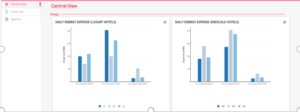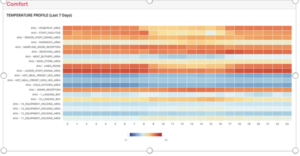Strong IoT-based energy management systems showcase expedited ROI, achieved in 14-18 months, says Rahul Bhalla, Co-Founder & CEO, Zenatix Solutions.
It is a given than energy efficiency in hotels should be a top priority. Data reveals that typically the energy use associated with the operation of HVAC systems in hotels is 50% of the total. In short, HVAC systems are the biggest energy guzzler, which leads to the rather trite but still ignored simple truth that HVAC systems can significantly contribute to high energy costs and an unpleasantly high total cost of ownership (TCO), if not properly managed.

Rahul Bhalla
Enter IoT, the saviour! From occupancy comfort to improved facility management, integrating IoT in hospitality can lead to significant reduction in energy use – to the extent that the savings are profoundly palpable, which means happy hotel owners.
How, exactly?
Energy management systems can help facility managers achieve deep visibility of the property’s operations and equip them to set intelligent AI/ML-based controls across their entire asset portfolio.
There have been multiple instances where remote asset monitoring has helped facility managers identify multiple sub-optimal operations in their properties, such as:
Those with a deep knowledge of IT applications suggest that investing in IoT-based HVAC automation will provide good ROI, because the related energy cost is significantly high. Further, strong IoT-based energy management systems showcase expedited ROI, achieved in 14-18 months.
Is IoT all about energy management?
No, energy management isn’t the only goal hoteliers are seeking. There are numerous operational challenges for which hoteliers constantly seek optimal solutions. These challenges include:
How can IoT help resolve these issues?
Implementing IoT solutions in a hotel can be a revolutionary step to resolve all the aforementioned challenges and to ensure significant energy savings. IoT-based solutions bring a bundle of benefits in addition to energy efficiency. For example, they can…

Figure 1: Benchmark energy consumption per room night

Figure 2: Benchmark temperatures in lobbies across all your properties

Figure 3: Automated anomaly detection and closure of tickets
Transforming the hospitality industry for sustainable growth
As per UNESCO, sustainable development is defined as meeting the needs of the present without compromising the ability of future generations to meet their own needs. It is our joint social responsibility to operate sustainably to ensure the survival of our future generations.
The hospitality industry is an essential component of tourism in the world. Hoteliers across the world are investing in making improvements to their infrastructure to ensure sustainability and conservation of natural resources.
According to Booking.com’s Sustainability Report 2021, 73% of travellers are more likely to choose a hotel that practices sustainability. ‘Going Green’ has become an effective marketing strategy to build goodwill by showcasing fulfillment of social responsibility.
Intervening to improve hotel health across multiple fronts is a no-brainer, really.
The writer may be contacted at rahul.bhalla@zenatix.com
Copyright © 2006-2025 - CPI Industry. All rights reserved.